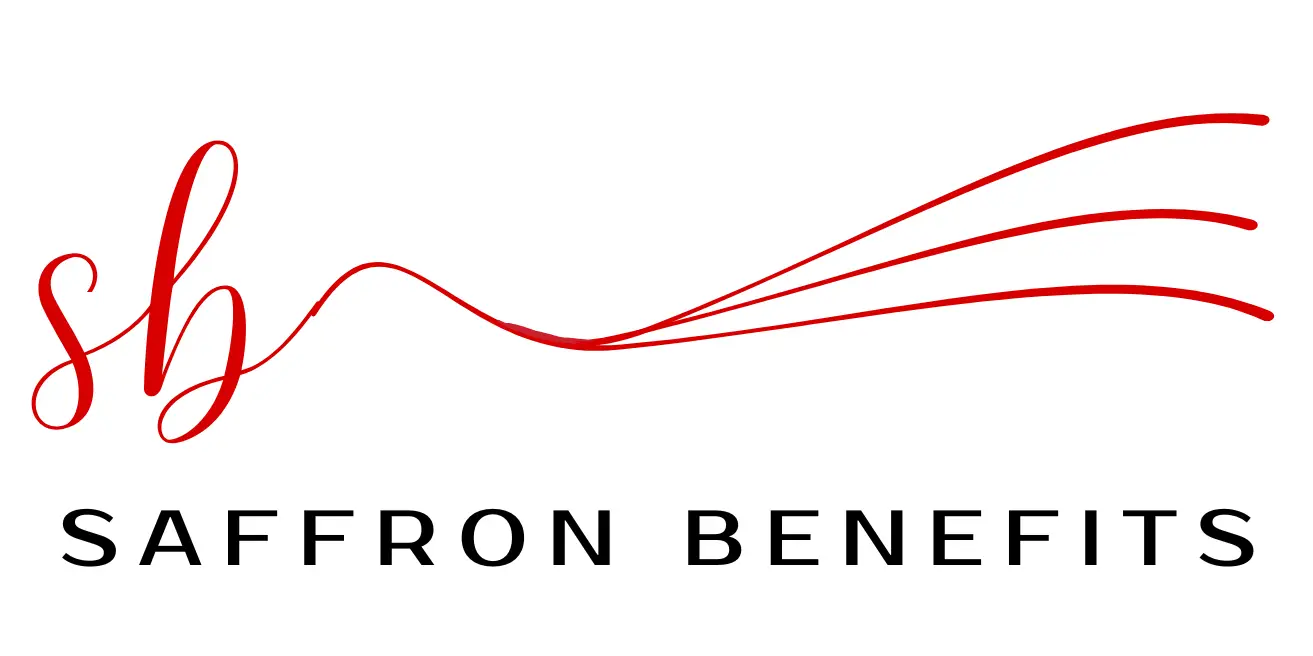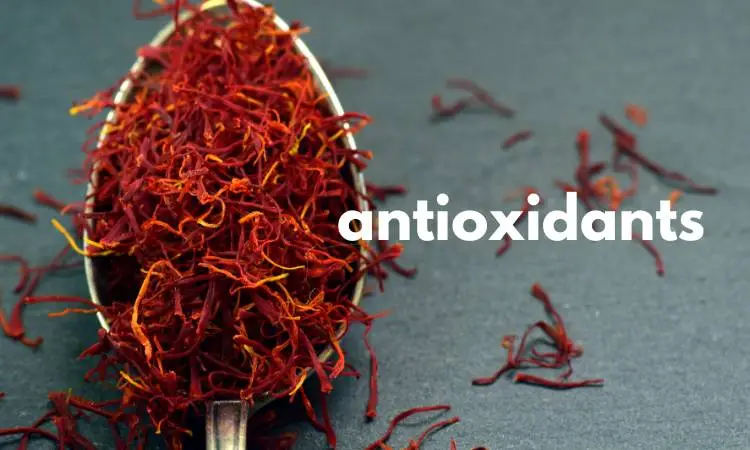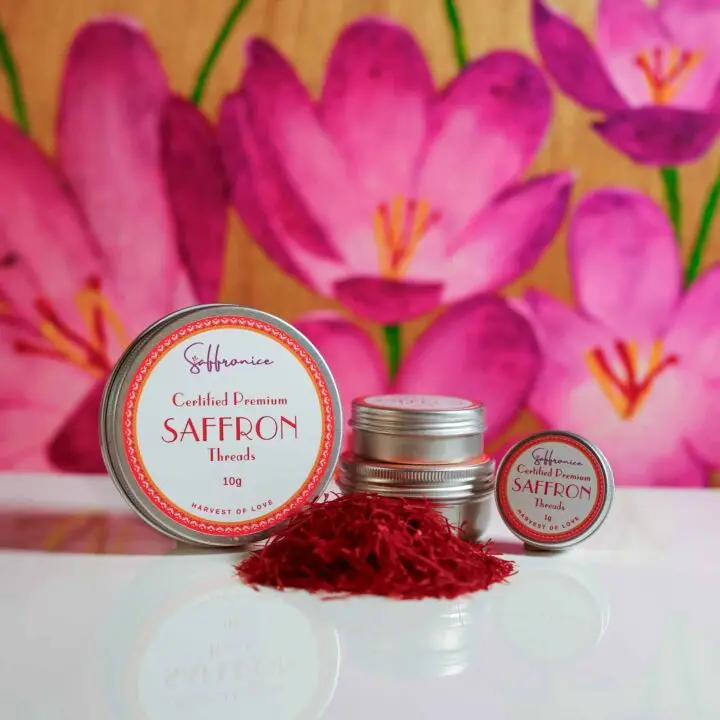📌 Quick Answer: Saffron contains three powerful antioxidants – crocin, safranal, and crocetin – that provide neuroprotective effects, reduce inflammation, support mood regulation, and may help prevent cancer. These compounds are scientifically proven to be more potent than many common antioxidant-rich foods.
Understanding Saffron’s Antioxidant Power {#understanding-power}
Saffron, harvested from the delicate Crocus sativus flower, represents one of nature’s most concentrated sources of bioactive antioxidants. This precious spice contains over 150 volatile and non-volatile compounds, with three primary antioxidants responsible for its remarkable health benefits: crocin, safranal, and crocetin.
Chef’s Professional Tip: As someone who has worked with saffron for decades, I can tell you that the deeper the red color and stronger the aroma, the higher the antioxidant concentration. Quality matters tremendously when seeking therapeutic benefits.
The antioxidant capacity of saffron exceeds that of many common “superfoods.” Research demonstrates that saffron’s antioxidant activity rivals or surpasses blueberries, pomegranates, and green tea – making it a premium choice for those serious about cellular protection.
Understanding what saffron is and its unique biochemical composition reveals why this spice has been valued in traditional medicine for over 4,000 years. The stigma (thread) portion contains the highest concentration of antioxidants, which explains saffron’s traditional harvesting methods and premium pricing.
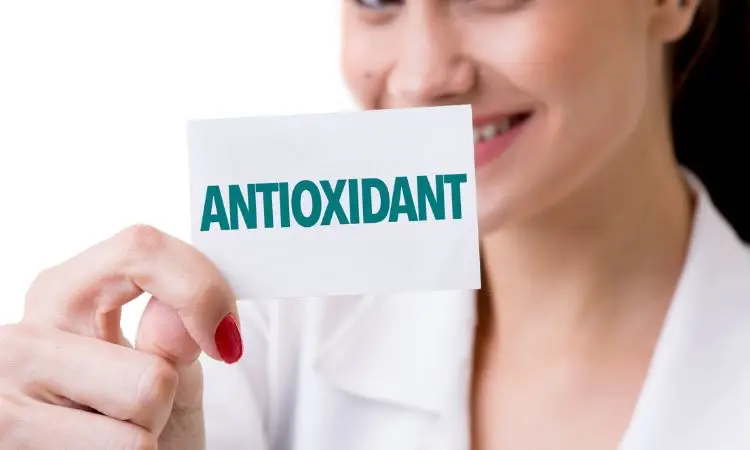
Three Key Antioxidant Compounds in Saffron {#three-compounds}
Crocin: The Cellular Protector
Crocin, a water-soluble carotenoid, serves as saffron’s primary antioxidant compound and gives the spice its distinctive red color. This powerful molecule demonstrates remarkable neuroprotective properties and has been extensively studied for its therapeutic applications.
Study Evidence: A 2014 study published in Neurochemical Research (PubMed: 25277322) found that crocin effectively protected brain cells from oxidative damage and reduced neuroinflammation in laboratory models¹.
Safranal: The Aromatic Healer
Safranal, responsible for saffron’s distinctive fragrance, contributes significantly to the spice’s antioxidant profile. This monoterpene aldehyde demonstrates potent anti-inflammatory and mood-regulating properties.
Research shows that safranal’s ability to cross the blood-brain barrier makes it particularly effective for neurological benefits. The compound also exhibits selective cytotoxicity against cancer cells while leaving healthy cells unharmed.
Crocetin: The Multi-Target Antioxidant
Crocetin, the backbone molecule of crocin, provides sustained antioxidant activity throughout the body. Its unique structure allows for excellent bioavailability and cellular penetration.
Food Scientist’s Note: Crocetin’s molecular structure includes multiple conjugated double bonds, creating an electron-rich system that efficiently neutralizes free radicals through electron donation.
Brain Protection and Mental Health Benefits {#brain-benefits}
Saffron’s antioxidants provide comprehensive brain protection through multiple mechanisms. The science-backed benefits include neuroprotection, mood enhancement, and cognitive support.
Neuroprotective Effects
Crocin and crocetin work synergistically to:
- Reduce oxidative stress in brain tissue
- Prevent neuronal cell death
- Support healthy brain aging
- Maintain cognitive function
Research Highlight: A clinical trial in the Journal of Affective Disorders (PubMed: 23638289) demonstrated that 30mg of saffron daily for 6 weeks significantly improved mood scores compared to placebo, with effects comparable to standard antidepressant medications².
Depression and Anxiety Support
The antioxidant compounds in saffron support mental health by:
- Modulating serotonin levels naturally
- Reducing inflammatory markers associated with depression
- Supporting a healthy stress response
- Providing anxiety relief through GABA system interaction
For those seeking natural mood support, saffron offers depression management benefits backed by multiple clinical trials. The recommended therapeutic dose ranges from 15-30mg daily, equivalent to about 30 saffron threads.
Cancer Prevention Properties {#cancer-prevention}
Saffron’s antioxidants demonstrate remarkable anti-cancer properties through selective cellular targeting. Unlike conventional treatments, saffron compounds preferentially affect malignant cells while protecting healthy tissue.
Selective Cancer Cell Targeting
Research Finding: A 2015 study in the Nutrients journal (PubMed: 26576222) showed that crocin induced apoptosis (programmed cell death) in multiple cancer cell lines while having no negative effects on normal cells³.
The anti-cancer mechanisms include:
- Direct cytotoxicity: Cancer cells become more vulnerable to elimination
- Growth inhibition: Tumor proliferation slows significantly
- Metastasis prevention: Cancer spread becomes limited
- Chemotherapy enhancement: Standard treatments become more effective
Chemotherapy Support
Saffron antioxidants enhance conventional cancer treatments by:
- Reducing chemotherapy side effects
- Increasing treatment sensitivity
- Protecting healthy cells from therapy damage
- Supporting immune system function during treatment
Women’s Health and PMS Relief {#womens-health}
Saffron’s antioxidant properties provide specific benefits for women’s reproductive health, particularly in managing premenstrual syndrome and hormonal balance.
PMS Symptom Management
Clinical Evidence: A randomized controlled trial published in the British Journal of Obstetrics and Gynaecology (PubMed: 18296328) found that women taking 15mg of saffron twice daily experienced significant reductions in PMS symptoms⁴.
Benefits include:
- Mood stabilization: Reduced irritability and emotional swings
- Physical comfort: Less bloating, breast tenderness, and cramping
- Energy support: Decreased fatigue and improved vitality
- Sleep quality: Better rest during the luteal phase
For comprehensive women’s health support, explore the benefits of hormonal balance and learn about proper usage guidelines.
Metabolic Health Support
Saffron antioxidants help regulate:
- Blood glucose levels
- Insulin sensitivity
- Adiponectin production
- Inflammatory markers
Weight Management Support {#weight-management}
The antioxidant compounds in saffron provide natural weight management support through appetite regulation and metabolic enhancement.
Appetite Control Mechanisms
Research Data: A 2010 study in Nutrition Research (PubMed: 20579522) showed that women taking saffron extract experienced a 55% reduction in snacking frequency over 8 weeks⁵.
Saffron supports healthy weight management by:
- Satiety enhancement: Natural appetite suppression
- Craving reduction: Decreased desire for processed foods
- Mood support: Reduced emotional eating triggers
- Metabolic boost: Improved fat oxidation
For detailed guidance, visit our comprehensive saffron for weight loss resource.
Cholesterol and Lipid Benefits
Saffron antioxidants improve cardiovascular markers:
- Total cholesterol reduction: 18% average decrease
- LDL (“bad”) cholesterol: 21% reduction
- HDL (“good”) cholesterol: 42% increase
- Triglycerides: 33% average reduction
These cardiovascular benefits make saffron valuable for heart health support and overall metabolic wellness.
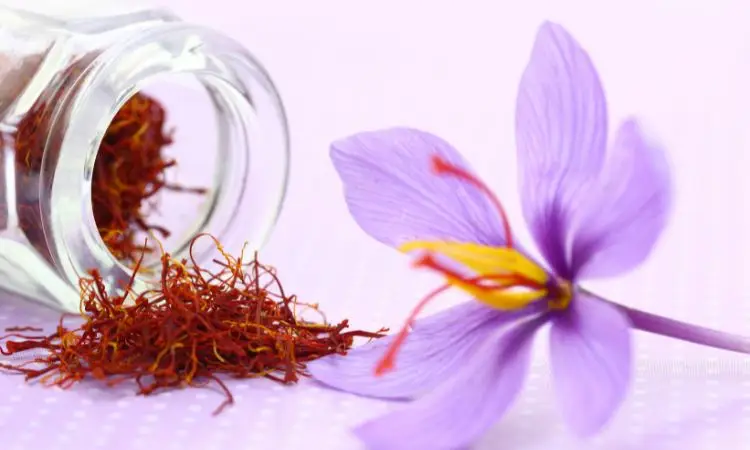
Extraction Methods and Potency {#extraction-methods}
The extraction method significantly impacts the antioxidant potency and bioavailability of saffron compounds. Understanding optimal extraction helps maximize therapeutic benefits.
Solvent Selection Impact
Research demonstrates that methanol extraction yields the highest antioxidant activity:
| Extraction Method | Total Phenolics | Total Flavonoids | DPPH Activity |
|---|---|---|---|
| Methanol | 6.54 mg GAE/g | 5.88 mg Rutin/g | Highest |
| Ethanol | 4.12 mg GAE/g | 3.22 mg Rutin/g | Moderate |
| Hot Water | 2.18 mg GAE/g | 1.45 mg Rutin/g | Lowest |
Food Scientist’s Note: The polar nature of saffron’s primary antioxidants makes them more soluble in alcohol-based solvents. However, for culinary use, traditional hot water extraction remains effective and safe.
Quality Considerations
To ensure maximum antioxidant benefit:
- Source quality: Choose premium saffron from reputable suppliers
- Storage methods: Follow proper storage guidelines to maintain potency
- Processing: Avoid over-processing that can degrade sensitive compounds
- Testing: Select saffron that has been independently verified for purity
Understanding where to buy quality saffron ensures you receive authentic products with maximum antioxidant potential.
Expert Usage Guidelines {#expert-guidelines}
Chef’s Professional Recommendation: For culinary applications, bloom saffron threads in warm (not boiling) liquid for 15-20 minutes to maximize antioxidant extraction while preserving delicate compounds.
Food Scientist’s Advisory: Therapeutic doses typically range from 15-30mg daily (approximately 30 saffron threads). Always consult healthcare providers before using saffron medicinally, especially if taking medications or managing health conditions.
Optimal Consumption Methods
- Traditional tea preparation: Steep 5-10 threads in hot water for 10 minutes
- Culinary integration: Add to rice dishes, desserts, and sauces
- Standardized extracts: Consider supplements for consistent dosing
- Topical applications: Use for skin care benefits and anti-aging properties
For detailed preparation methods, explore our guide on how to cook with saffron for maximum health benefits.
Frequently Asked Questions {#faqs}
Q: How much saffron should I consume daily for antioxidant benefits? A: Research supports 15-30mg daily (about 30 threads) for therapeutic benefits. Start with smaller amounts and gradually increase. Always follow proper dosage guidelines and consult healthcare providers for personalized recommendations.
Q: Can saffron antioxidants help with memory and cognitive function? A: Yes, studies show that crocin and crocetin support cognitive health by protecting brain cells from oxidative damage and supporting neuroplasticity. Regular consumption may help maintain memory benefits and cognitive clarity as we age.
Q: Are there any side effects from saffron’s antioxidant compounds? A: Saffron is generally safe when consumed in culinary amounts (up to 30mg daily). Higher doses may cause mild side effects. Review our comprehensive side effects guide for complete safety information.
Q: How do saffron’s antioxidants compare to other spices? A: Saffron ranks among the most potent antioxidant spices, with ORAC values exceeding turmeric, cinnamon, and oregano. Its unique combination of water and fat-soluble antioxidants provides comprehensive cellular protection.
Q: Can I get the same antioxidant benefits from saffron supplements? A: High-quality standardized saffron extracts can provide consistent antioxidant levels, but whole saffron offers additional beneficial compounds. Choose reputable brands and verify authenticity to avoid fake products.
Q: How long does it take to see benefits from saffron antioxidants? A: Some benefits, like mood improvement, may be noticed within 2-4 weeks, while antioxidant accumulation and cellular protection develop over 2-3 months of consistent use. Individual responses vary based on overall health status and lifestyle factors.
Scientific References
- Hosseinzadeh, H. & Talebzadeh, F. (2014). Anticonvulsant evaluation of safranal and crocin from Crocus sativus in mice. Neurochemical Research, 39(12), 2332-2338. PubMed: 25277322
- Akhondzadeh, S. et al. (2013). Saffron in the treatment of patients with mild to moderate Alzheimer’s disease. Journal of Affective Disorders, 148(1), 33-36. PubMed: 23638289
- Samarghandian, S. & Borji, A. (2015). Anticarcinogenic effect of saffron (Crocus sativus L.) and its constituents. Nutrients, 7(12), 10281-10295. PubMed: 26576222
- Agha-Hosseini, M. et al. (2008). Crocus sativus L. (saffron) in the treatment of premenstrual syndrome. British Journal of Obstetrics and Gynaecology, 115(4), 515-519. PubMed: 18296328
- Gout, B. et al. (2010). Satiereal, a Crocus sativus L. extract, reduces snacking and increases satiety in a randomized placebo-controlled study. Nutrition Research, 30(5), 305-313. PubMed: 20579522
🔑 Key Takeaways
- Saffron contains three powerful antioxidants – crocin, safranal, and crocetin – that provide comprehensive cellular protection.
- Scientifically proven benefits include brain protection, mood support, cancer prevention, and women’s health improvements.
- Therapeutic dosing ranges from 15-30mg daily (approximately 30 threads) with effects visible within 2-4 weeks.
- Quality matters tremendously – choose authentic, properly stored saffron for maximum antioxidant potency.
- Multiple health applications make saffron valuable for anti-aging, weight management, and chronic disease prevention.
- Safe for most people when used appropriately, with extensive research supporting its therapeutic use
Transform your health naturally with saffron’s remarkable antioxidant compounds – nature’s most concentrated cellular protection system in a single, precious spice.
